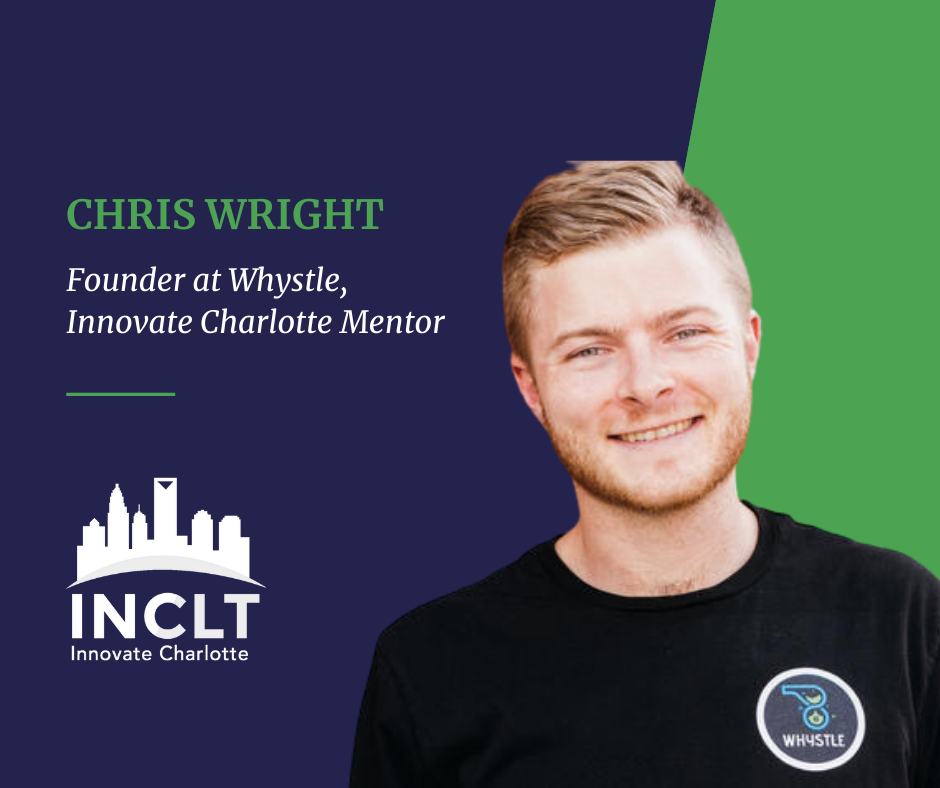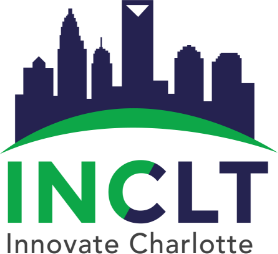The evolution of Whystle
When Chris Wright started looking into launching a business, he had no idea what he would be doing — and certainly no clue that he would use his business to help slow the spread of disease during a global pandemic.But sometimes, that’s how it goes when you’re starting a business. You don’t always begin with a defined vision. Instead, the vision finds you. For Wright, it took the form of the on-demand apartment and home cleaning app Whystle, which was acquired earlier this year.

Whystle’s beginnings
Wright had been working as a consultant for Deloitte for several years when he began looking for an opportunity to leave consulting and start a company of his own.“I loved what I did and I got exposed to a lot of things, but I was looking for a way out,” Wright said. “I brought 1,000 different ideas to my then girlfriend, now wife. Her response was usually ‘do more research’ or ‘that’s a terrible idea.’” He knew he wanted to build a business around technology. This, coupled with the desperate need to have his own home cleaned, led to the initial ideas for Whystle.
“I was traveling Monday through Thursday, and my wife was working 60 to 70 hours a week,” Wright said. “She would grab my arm after picking me up from the airport and say, ‘I’m sorry.’ We’d get in the apartment, and it was a disaster. I only had 72 hours at home, and I didn’t want to spend it cleaning.”
His search for cleaners was disastrous. Several companies turned out to be scams. Several more canceled multiple times, and many would take days to schedule. It was then that he knew there could be a better way, and he could be the one to offer it. “I saw a gap in the market. I knew there were a lot of apartment complexes in Charlotte and a lot of busy professionals who would pay for cleaning,” he said.
When his cleaning business began, Wright focused primarily on millennials who were renting apartments. This evolved into cleaning single family homes and Airbnb properties. In December of 2018, he launched his website, and by March of 2019, he left the consulting world to focus on Whystle full time. In the beginning, Wright had some difficulty finding customers, so he began hosting events at apartments to create a stronger client base. He knew there was more to learn about business ownership, and in the fourth quarter of 2019, he applied to the INCLT Venture Mentoring Service.
How Innovate Charlotte helped
During Wright’s first meeting with a mentor, it became apparent that he had a lot to learn — and unlearn. “I’ve had to unlearn a lot of habits from consulting,” Wright said. “I can talk for an hour and a half without asking questions. My mentor team was really impressed at first because I looked organized, but I wasn’t asking any questions, I wasn’t getting the mentorship component.” As time went on, Wright began to realize that the more he put into the program, the more he could get out of it.
“Around the second or third meeting, I started to be really honest with the team and be a bit more transparent and open,” he said. “I got way more impact. There were resources they could provide, ideas they could throw out based on past experience. That’s where it really started to kick in.”
The two biggest things Wright took from the meetings were accountability and organization. Having a team to bounce ideas off and to help set and meet goals moved Whystle forward. Wright’s idea began to see 10% growth month over month until Whystle’s biggest month, March of 2020. His team grew to 30 people and work kept coming. However, when the calendar turned to April, the looming COVID-19 pandemic threatened to bring the entire thing to a close. “Almost overnight, 75% of our customer base dropped off,” Wright said. “We went from having our highest month to being back to where we were in quarter three in 2019. We jumped back six to eight months and had built up expenses to scale.”
The COVID pivot
The coronavirus crash could have meant the end of Whystle. Instead, Wright turned it into an opportunity to evolve the business while also keeping people safe. “We realized there was a significant need for small, medium and large business disinfection services,” Wright said. “We had the knowledge and expertise. We knew how chemicals worked and how to apply them, and we had the team in place. So, we started going around and helping businesses in this capacity.”
Wright said cleaning was still the core service offering, but the stakes were higher. He began focusing on education about the virus and how to properly disinfect, to avoid falling into the category of businesses who were simply trying to make a profit off of people’s fears.“I’d rather everyone be safe than for me to capitalize on this event,” Wright said.
It wasn’t long before Wright made the decision to cancel residential accounts and shift the business entirely into a commercial disinfecting service. “We pivoted into commercial disinfection and janitorial services,” Wright said. “We landed a couple of large contracts, one with a major distribution center. We were there 24/7.” These accounts, paired with grants and a PPE loan, ultimately saved Whystle.
The company doubled down on commercial accounts in late summer of 2020 and hired a commercial operations manager. Residential services also resumed, and by December, the startup had grown almost to the level of income it had seen in March. Then, in January of 2021, Wright was approached by someone interested in buying Whystle.
What’s next for Wright?
In February 2021, Whystle announced it had been acquired by an anonymous buyer. Wright called this a “team decision,” and it is not one that was made lightly. When the initial offer was made, Wright began to ask advice from the people in his network, many of whom were also interested in making an offer for the business, which resulted in a kind of bidding war. Wright said he leaned heavily on his INCLT mentors when it came to making a decision.
“At the end of the day, if you’re letting go of your baby, there is an element of wanting to make sure it goes into good hands and that everyone involved is taken care of,” he said. Wright decided to sell but remains a part of the team in an advisory role. He still sees himself as the father of the company.
“Chris is Whystle, and Whystle is Chris,” he said. “So, there is a bit of identity tearing if you’re no longer technically a founder and you’re no longer running this startup that is now in someone else’s hands. Now I have to sit back and not say anything. They’re doing it differently than I would and there’s nothing wrong with that.” Wright believes he will eventually start another business and also plans to use the lessons he learned along the way to help others, beginning with his new role as an INCLT mentor.
“I made every mistake you possibly could, and that’s OK. I can teach others from the mistakes I made,” Wright said. “I’m a firm believer that when you stop learning and growing, that’s when you stagnate. I always think there are things people can teach you. There is always something to learn from every single person.”
“It’s an amazing story” said Olga Muller, CEO at Kepler Team. “I’m excited to see one of our senior leaders, Olga Ryzhikova, join Innovate Charlotte as a mentor to help support founders like Chris”, she continued.
Are you interested in becoming an INCLT mentor — or mentee? Apply today!
